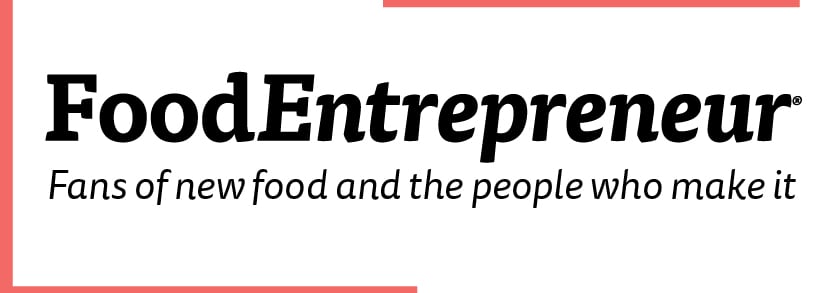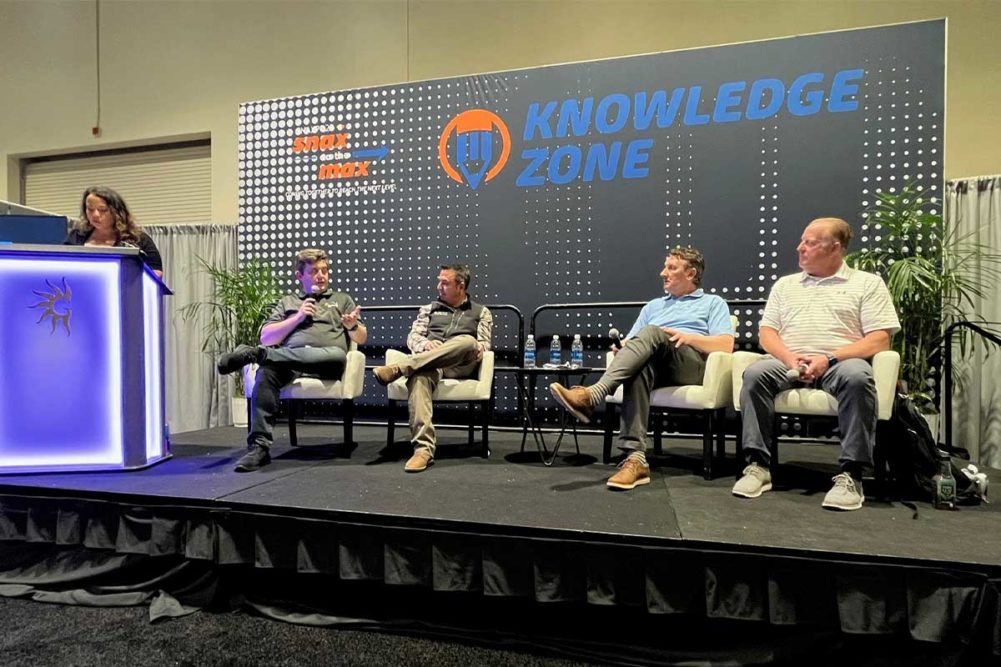 ORLANDO, FLA. — For emerging snack brands, partnering with a co-manufacturer is often a key step in taking their company to the next level and scaling up business. But working with a co-man can pose its own challenges that brands must consider before diving in.
ORLANDO, FLA. — For emerging snack brands, partnering with a co-manufacturer is often a key step in taking their company to the next level and scaling up business. But working with a co-man can pose its own challenges that brands must consider before diving in.
At SNAXPO 2023, held March 19-21 in Orlando, Fla., a panel of co-manufacturers and product developers shared how snack brands can ensure their relationship with co-mans is a winning one.
Chuck Woods, senior director, commercial, MSI Express Inc., said the biggest struggle he sees brands face with co-mans is a lack of planning to get their business ready for increased production and distribution.
“They don’t have a plan from a marketing perspective,” he said. “Just because you have a formulation, doesn’t mean you’re ready to go to market.”
The main reason co-man partnerships are unsuccessful, said Dave Krombeen, general manager of Cheeze Kurls, Grand Rapids, Mich., is that brands don’t get their volume on the right path to warrant the co-man producing their product.
“We understand that it might take six months to get some of that [growth] going, but you have to have enough to make it efficient for us to keep the equipment for it,” he said.
Jamie Valenti-Jordan, founder and chief executive officer, Catapult Commercialization Services, noted that many of the issues with co-mans come from mismanaged expectations.
“Many times, one side decides their partner only needs to know so much about the business, and that leads to problems,” he said. “If you plan on being successful, you need to be in a partnership with your manufacturing partner, because literally without them you have no product.”
To ensure a co-man relationship goes smoothly, Mr. Woods emphasized that brands must communicate with them early and often.
“(Co-mans) can help steer what’s more effective and efficient to run and what that looks like,” he explained. “The earlier [brands] engage in collaboration through packaging, testing and trials, that will support success.”
Pete Brennan, vice president, innovation, Mattson, added that brands should try to learn from co-mans whenever possible.
“As much as you can, try to be there on the line,” he said. “Watch your product run. Work with the team, ask questions.”
And while co-mans can be difficult to work with at times, Mr. Brennan said brands should take caution before deciding to make their product themselves, a process that’s often much more time and capital intensive.
“Understand that you’ll likely be managing two businesses at once: your manufacturing business as well as the brand,” he said. “With that in mind, go into it with the same vigor and passion as the company you started.”
There are many co-mans at snack makers disposal today, and Mr. Woods noted that the industry is growing more than 10% annually. These co-mans can produce virtually any type of product, panelists agreed, including those with hard-to-handle ingredients.
“Maybe 10 years ago, the answer (for brands) would have been ‘Maybe I should do this myself,’ ” Mr. Woods said. “But there’s a lot of different options and capabilities you can leverage, and you can sink your capital into building your brand and to marketing it.”
Enjoying this content? Learn about more disruptive startups on the Food Entrepreneur page.





